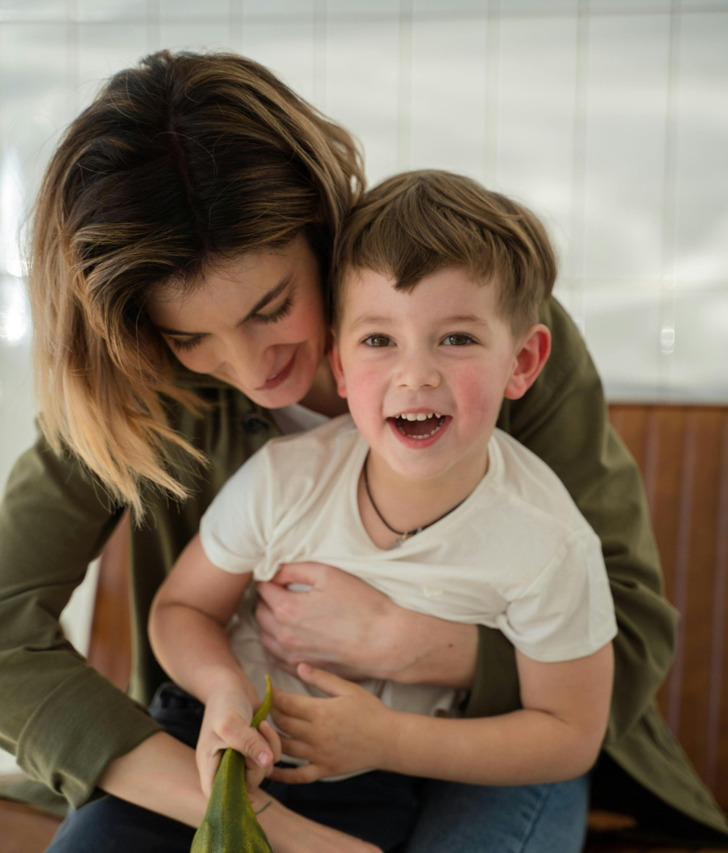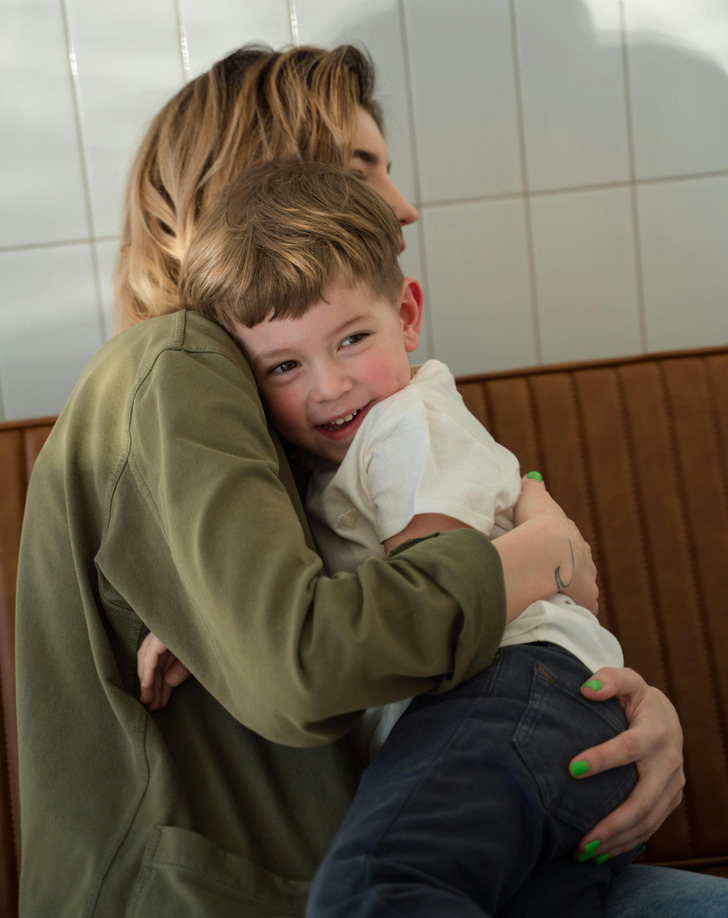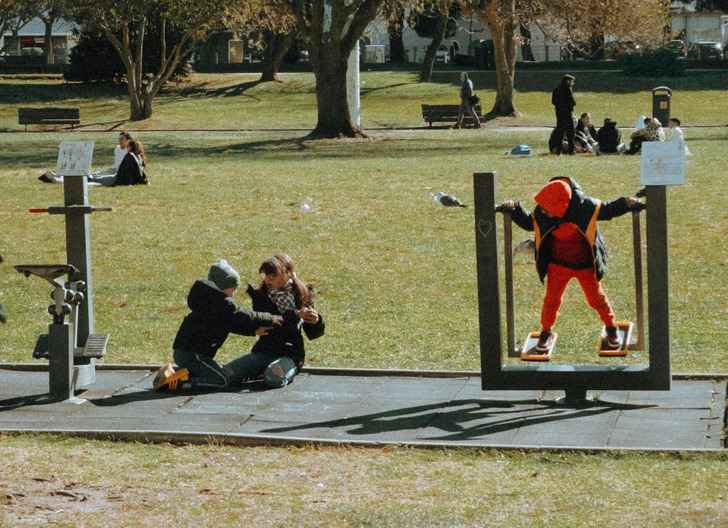Wow thats just wrong your kid gonna be psychologically messed up anyway cause your not teaching him and he will be traumatized anyway
I Never Force My Son to Say SORRY and THANK YOU — It Could Psychologically Traumatize Him
When it comes to parenting styles, there are numerous methodologies, each with its own advocates and proponents. Some parents believe in being strict, while others are more relaxed and focus on being gentle and understanding. Our reader Emma belongs to the second category. She wrote to Bright Side not only to share her unique parenting style but also to seek advice from other parents, as she has often encountered criticism regarding her methods of upbringing.
Emma decided to be a cycle breaker in her family.
Emma, 38 years old, reached out to us with a heartfelt letter, “Hello, Bright Side, I’ve always admired your platform as a reliable source where people freely express their opinions on various topics. In the past, I’ve often engaged with others’ posts on your page, offering advice and sharing my perspectives on the stories shared. Now I’m seeking opinions from your audience in the situation with my son.”
The woman started her story, saying, “My son, Georgie, is 8 years old. All my life, I knew that I wanted to have children. When I found out I was pregnant, I decided to break the cycle in my family by adopting a less adversarial style of parenting.”
Her parents’ strict upbringing affected her mental well-being.
The woman explains that such a decision stems from bitter personal experience, “Growing up under the strict rule of my parents, I’ve come to understand the consequences of such an authoritarian upbringing. It wasn’t just tough for me, it affected everyone in our household. The constant pressure led to anxiety, and my self-esteem suffered. My relationships with parents were strained.”
“It took me years to realize the toll this environment had on my mental well-being. But as I grew older, I made a conscious effort to confront these challenges. It’s important to find a balance between discipline and understanding in raising children.
That is why I want to create a nurturing environment for my son, one that prioritizes love, respect, and open communication. So he doesn’t have to go through the same hardships as I did. But my husband does not agree with this approach in raising a child. He believes that Georgie should understand social norms and the consequences of his actions.”
Her son doesn’t give false apologies.
The mother chose to instill empathy in her son without insisting on deliberate politeness. She expresses, “One thing I’ve decided is that I will never force my child to apologize or say thank you and please. I truly believe that this approach can psychologically traumatize him.”
The mother explained her position, “When we make kids say sorry, even if they don’t really mean it, we’re teaching them to be fake. Your child might not genuinely feel sorry for what they did, and that’s alright. It takes time for kids to learn empathy and realize how their actions affect others.
Forced apologies teach kids that other people’s feelings matter more than their own. Sometimes, when we argue or have a problem, we need time to calm down and think about what we did wrong. This thinking helps us see our part in the problem and admit our mistakes.
When we rush to make kids say sorry, we don’t give them this time to think. We also tell them to ignore how they feel and only focus on the other person. This might lead to grown-ups who always try to please others, struggle to speak up for themselves, and don’t know how to get what they need. That’s why Georgie doesn’t give false apologies.”
In her letter, Emma recalls an incident that occurred recently at the playground, “When Georgie pushed another kid at the playground, instead of forcing him to apologize, I came to this kid and apologized myself instead. I believe that Georgie would watch my example and learn acceptable behavior in that situation.” But according to Emma’s letter, the kid’s mother wasn’t happy with this and asked Georgie to apologize himself, “When I said that my son is not going to apologize because it could traumatize him, she called me ’A bad and irresponsible mother’ for letting my son behave like this.”
She faces a lot of criticism from family and friends.
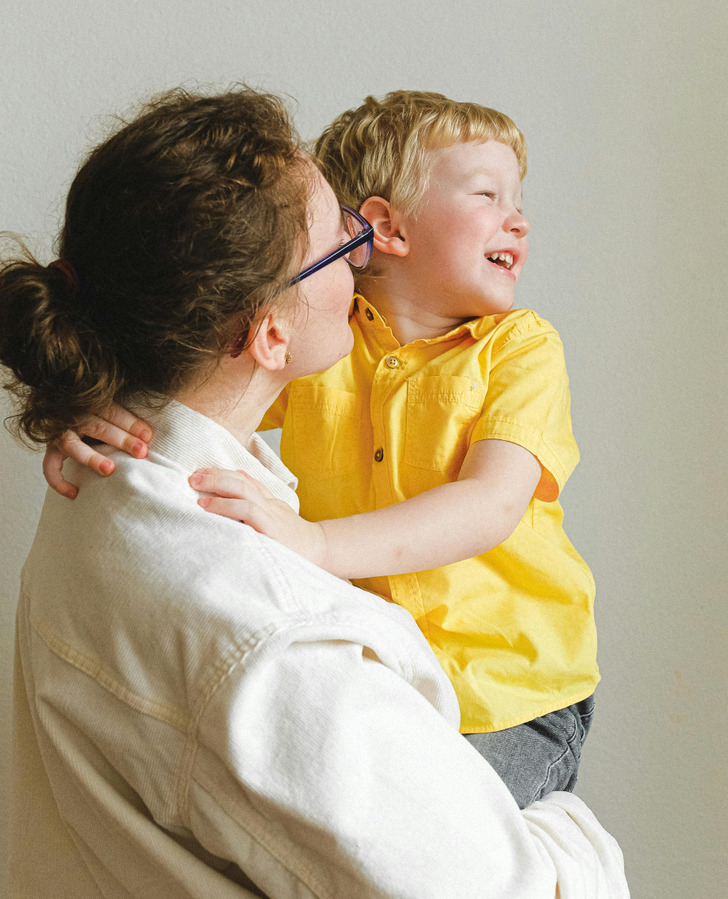
It is common decency to teach your children good manners & also to emphathise with other children.
Emma continues her story, “This incident at the playground only escalated our argument with my husband about parenting. He insists on stricter methods, but I don’t agree with him. Some people, thinking about good parenting, might use force or even be mean to control what their child does, all to protect their own reputation. They might do this because they feel unsure or scared.
I want to be a friend to my son, help him understand his emotions, and navigate life together. This way of relating helps the child learn about freedom and responsibility and how they affect others. I don’t ignore my authority; I just don’t consider myself superior to my son.
Georgie and I already share a strong bond, and if I feel overwhelmed, I’ll explain to him that I need some time alone. Now that he’s learning from me, he’ll let me know if he needs space.”
Concluding her letter, Emma writes, “Despite always having confidence in my parenting methods and seeing positive results, constant criticism from my husband and other parents has made me question my decisions. I hope your audience can give me some advice. What do you think about this?”
Angelina Jolie is renowned not only for her remarkable talent and philanthropic endeavors but also as a mother to many children. In this article, you’ll discover 10 unconventional family rules that Angelina follows that make her parenting style unique.
Comments
How would she want the situation handled if it had been her kid being pushed down or bullied. She will spend her life apologizing for his crimes because this is just the beginning. And basic courtesies such as Please and Thank You are some of the best currencies in the world. She is making a mistake that she will, in the future, regret.
Saying please and thank you are common courtesies that every child should learn. He should also learn that if he does something to hurt another person, he needs apologize, not the parent. He needs to learn that there are consequences for all his actions, whether good or bad. She is the parent and he is the child. If she does not teach him basic manners now, he will pay for her mistakes in the future. Not everyone is going to let him do whatever he wants in the future without consequences.
sociopath in the making a spoilt one at that
Teaching him how to honestly sorry, would be a better approach.
Ask him how he would feel if he was pushed over perhaps.
What excuse does she have for not teaching him please or thank you?
You are not your child's friend, you are the parent. When they are older then you can be their friend. You need to be a parent and discipline your child. If they don't apologize for doing something wrong they will continue with this behavior because there are no consequences. You are making a huge mistake
Related Reads
12 Serious Discoveries That Altered Lives in a Split Second
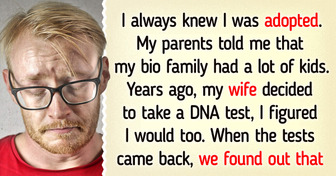
I Refused to Share My $400K Lottery Winnings With My Family
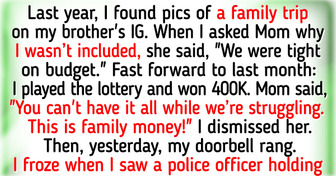
My Mother-in-Law Accused Me of Stealing, Karma Stepped In With a Twist
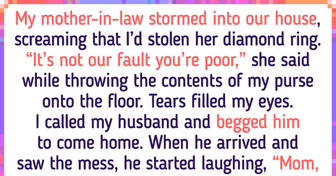
My Husband Was Secretly Watching Our New Neighbor, and Here’s the Sad Truth Behind His Behavior
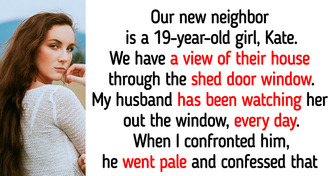
12 Deep Family Secrets That Broke People’s Hearts
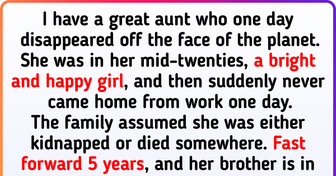
I Canceled My Wedding After Overhearing What My Fiancé Said Behind My Back

My MIL Refused to Respect Our Parenting Rules—Now She Won’t Be Babysitting the Kids
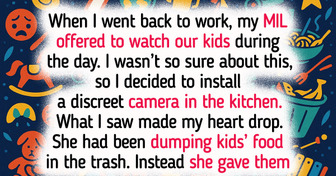
Helen Hunt, 60, Leaves the Internet Stunned in Recent Appearance and Everybody’s Talking About Her Lips

15 Actors Who Became Even More Handsome With Age

10 Real-Life Stories Where a Tiny Clue Revealed a Big Skeleton in the Closet
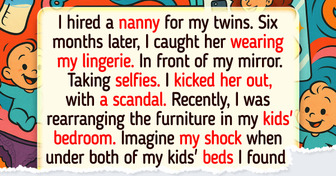
12 People Who Started a Normal Day but Ended It in Chaos
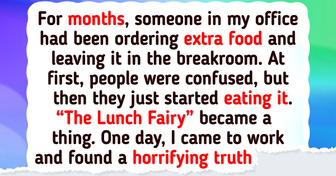
16 People Who Should Have Taken Out Insurance Before Welcoming Their Guests

